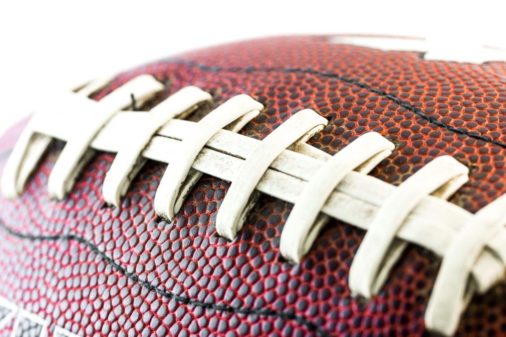As astutely pointed out by Rustin Cohle in True Detective, “time is a flat circle. Everything we have done or will do, we will do over and over and over again – forever.” For any fans of college football, this certainly rings true as it pertains to NCAA transfers.
This week, prominent University of Georgia sophomore offensive tackle Cade Mays entered into the infamous transfer portal, and all signs point to his instant enrollment at the University of Tennessee. Georgia is no stranger to talented players transferring in or out of its program: in the summer of 2018, former five-star wide receiver Demetris Robertson made the jump to UGA from the University of California; and more notably, quarterback Justin Fields made waves when he transferred to The Ohio State University in advance of the 2019 season.
Even for Georgia, though, the Mays situation introduces a new wrinkle. In December 2019, Mays’ parents filed a lawsuit in a Georgia state court against several entities, including the University of Georgia and the UGA Athletic Association. In brief, the incident allegedly occurred over two years ago during Mays’ recruiting process at Georgia, wherein his father ultimately suffered an amputated finger. This new development begs the age-old question once again – will Mays be required to forego his 2020 season, or will he be able to secure a waiver for extenuating circumstances, allowing him to play immediately?
As it’s been previously discussed, while the NCAA has implemented and reformed guidelines as it pertains to waiver requests, it has stopped short of dismissing the gatekeeper approach entirely. Indeed, the NCAA has continued to grant approximately 70 – 80 percent of all waiver requests, though it does not publicly explain the rationale behind these decisions. Thus, we’re required to look at similar high-profile waivers granted over the past several years in predicting how it will evaluate the case of Mays.
In fact, the aforementioned Georgia transfer waiver success stories may prove insightful into this newest episode. With Robertson, a handful of family health scares arose over his seasons at California that made it difficult for him to focus on both studies and athletics. Meanwhile, Fields reportedly was the target of racial slurs shouted by a Georgia baseball player, causing him a feeling of uneasiness and preventing him from potentially pursuing a collegiate baseball career, as well.
Upon reviewing the varying cases of Robertson and Fields, an interesting parallel can be drawn with Mays. While the alleged incident involving the amputation of his father’s finger occurred more than two years ago, his father has undergone multiple operations and continues to try and recover from this injury; this gives credence to Mays’ family hardship position. Similarly, the lawsuit was just filed against Georgia in December; it stands to reason that, much like with Fields’ uneasiness, Mays would not feel entirely comfortable either on the field or in the classroom with this lawsuit looming overhead.
Notably, Mays has retained attorney Tom Mars for his transfer situation; if that name sounds familiar, it’s likely due to his representation of Fields just last year, along with several other prominent transfer names. While the NCAA actually hired Mars in the summer of 2019, Mars has indicated this has no impact on his ability to assist student-athletes in seeking transfer waivers.
Finally, as an intra-conference transfer, Mays must receive a waiver from both the NCAA and the SEC to gain instant eligibility. As noted by Mars, SEC Commissioner Greg Sankey will likely await the NCAA’s decision; assuming the NCAA finds in favor of Mays, the SEC would be hard-pressed not to follow suit.

